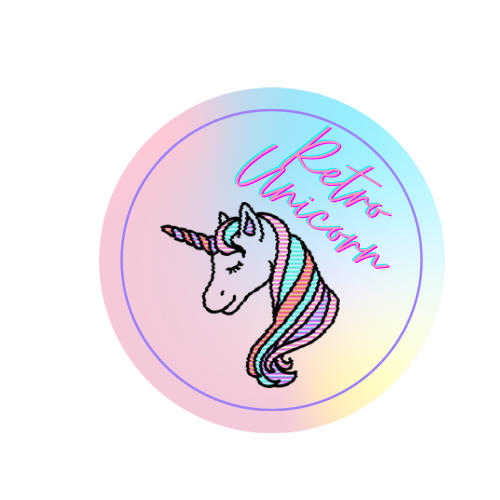This post contains affiliate links. That means I earn a commission when you click the links and place an order.

I’ve been watching Attack on Titan since 2014, but funny enough, I wasn’t initially drawn to the show. One random day, a friend sat us down and insisted we had to watch the first episode. And after that intense opener? I was hooked. What followed was a decade-long fascination with the series—fanart, fanfiction, merch (I probably have enough Wings of Freedom to join the Survey Corps at this point), and even a return to reading manga. I started watching the series in Japanese and have always preferred the sub over the dub, though I have to admit the dub improved a lot in later seasons. The soundtrack has also been one of my absolute favorites in anime, perfectly capturing the intensity, emotion, and grandeur of the story. While it’s not officially labeled as horror, I think we can all agree Attack on Titan has some of the most terrifying moments in anime.
From the first frame, the animation was breathtaking. The switch from Wit Studio to MAPPA for season four was a welcomed change for me. While Wit’s animation was phenomenal, MAPPA’s darker, grittier style fit the mood of the story perfectly, especially as it shifted into its final, more mature themes. Their work on The Last Attack delivered some of their best animation yet, making every battle sequence feel massive and every emotional moment hit even harder. The Rumbling scenes? Absolutely chilling. Seeing the devastation unfold on the big screen was overwhelming in the best way possible.
One of the most powerful things about watching The Last Attack as a movie was experiencing the story’s final moments all at once, rather than spread out over multiple episodes. Instead of waiting week to week, I was completely immersed, feeling every emotion hit me in real-time—shock, sorrow, awe, and even a strange sense of closure. The pacing, tension, and emotional weight felt even more intense when there were no pauses, just the relentless march toward the inevitable conclusion.
The film didn’t just deliver on the action—it made me reflect on everything Attack on Titan has stood for: freedom, sacrifice, and the cost of war. The way it wrapped up the character arcs, especially Eren, Mikasa, and Armin, felt true to the story, even if it was bittersweet. I knew it wouldn’t be a happy ending, but the execution was raw and powerful. There were moments I just sat there, letting it all sink in, because I wasn’t ready to say goodbye.
Two of my favorite characters have always been Hange Zoë and Levi Ackerman. Hange’s boundless curiosity, eccentric energy, and deep love for their comrades made them one of the most compelling characters in the series. Their ability to balance intelligence and humor with the grim realities of war was something I always admired. Levi, on the other hand, is the definition of resilience. From his tragic backstory to his unwavering determination, he’s a character who carries so much pain yet never wavers in his duty. His bond with Hange was one of the most touching aspects of the story—two leaders who relied on each other, challenged each other, and ultimately shared an unbreakable trust. Seeing their journeys come full circle in The Last Attack was both heartbreaking and beautiful, reminding me why I connected with them so deeply.
Then there’s Reiner. I won’t lie—when his betrayal was revealed, I was furious. He played a direct role in destroying so many lives, and it was hard to see past that at first. But as the story continued and I learned more about his struggles, his guilt, and the world beyond the walls, my feelings shifted. I started to sympathize with him, understanding that he was just a pawn in a much larger conflict, trapped by duty and expectations. Attack on Titan never gives us the luxury of a clear “good side” or “bad side.” Almost every character has committed atrocities in the name of their cause, forcing us to question what justice even means in war. That moral complexity is one of the things I love most about the series—it challenges us to see the humanity in everyone, even those we once viewed as villains.
Attack on Titan was created by Hajime Isayama and first debuted as a manga in 2009, with the anime adaptation premiering in 2013. Since then, it has become one of the most influential anime of all time, known for its gripping storytelling, complex characters, and shocking plot twists. Its impact on anime and pop culture is undeniable—Attack on Titan helped introduce a new wave of fans to anime, influenced countless works, and sparked global discussions about its deep themes of freedom, oppression, and the consequences of war. Its popularity has also extended beyond anime, inspiring live-action adaptations, spin-offs (Junior High, No Regrets, Lost Girls), and collaborations across various industries.
Leaving the theater, I felt emotionally drained but also fulfilled. The Last Attack wasn’t just a movie; it was a grand finale that respected everything that came before it. It made me appreciate just how far this series has come and why it’s one of the greatest anime of all time. If you've been on this journey from the start, this is a must-watch—just be prepared for it to leave a lasting impact.
You can watch Attack on Titan on Crunchyroll or Hulu. BluRay and DVD sets are also available on Amazon.




